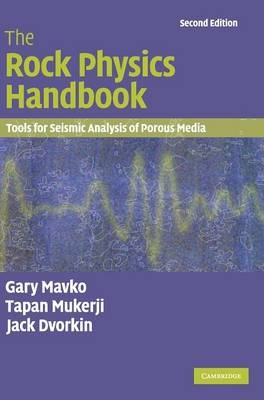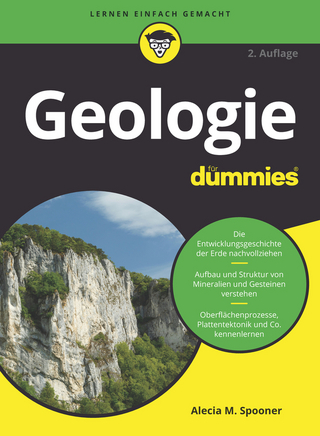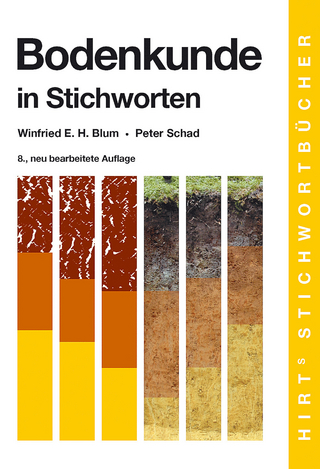
The Rock Physics Handbook
Cambridge University Press (Verlag)
978-0-521-86136-6 (ISBN)
- Titel erscheint in neuer Auflage
- Artikel merken
The Rock Physics Handbook addresses the relationships between geophysical observations and the underlying physical properties of rocks. It distills a vast quantity of background theory and laboratory results into a series of concise chapters that provide practical solutions to problems in geophysical data interpretation. This expanded second edition presents major new chapters on statistical rock physics and velocity-porosity-clay models for clastic sediments. Other new and expanded topics include anisotropic seismic signatures, borehole waves, models for fractured media, poroelastic models, and attenuation models. This new edition also provides an enhanced set of appendices with key empirical results, data tables, and an atlas of reservoir rock properties - extended to include carbonates, clays, gas hydrates, and heavy oils. Supported by a website hosting MATLAB® routines for implementing the various rock physics formulas, this book is a vital resource for advanced students and university faculty, as well as petroleum industry geophysicists and engineers.
Gary Mavko received his Ph.D. in geophysics from Stanford University in 1977 where he is now Professor (Research) of Geophysics. Professor Mavko co-directs the Stanford Rock Physics and Borehole Geophysics Project (SRB), a group of approximately 25 researchers working on problems related to wave propagation in earth materials. Professor Mavko is also a co-author of Quantitative Seismic Interpretation (Cambridge, 2005), and has been an invited instructor for numerous industry courses on rock physics for seismic reservoir characterization. He received the Honorary Membership award from the Society of Exploration Geophysicists in 2001, and was the SEG Distinguished Lecturer in 2006. Tapan Mukerji received his Ph.D. in Geophysics from Stanford University in 1995 and is now an Associate Professor (Research) in Energy Resources Engineering and a member of the Stanford Rock Physics Project at Stanford University. Professor Mukerji co-directs the Stanford Center for Reservoir Forecasting (SCRF) focussing on problems related to uncertainty and data integration for reservoir modeling. His research interests include wave propagation and statistical rock physics, and he specializes in applied rock physics and geostatistical methods for seismic reservoir characterization, fracture detection, 4-D monitoring, and shallow subsurface environmental applications. Professor Mukerji is also a co-author of Quantitative Seismic Interpretation, and has taught numerous industry courses. He received the Karcher award from the Society of Exploration Geophysicists in 2000. Jack Dvorkin received his Ph.D. in Continuum Mechanics in 1980 from Moscow University in the USSR. He has worked in the petroleum industry in the USSR and USA and is currently a Senior Research Scientist with the Stanford Rock Physics Project at Stanford University. Dr Dvorkin has been an invited instructor for numerous industry courses throughout the world, on rock physics and quantitative seismic interpretation. He is a member of American Geophysical Union, Society of Exploration Geophysicists, American Association of Petroleum Geologists, and the Society of Petroleum Engineers.
Preface; 1. Basic tools; 2. Elasticity and Hooke's law; 3. Seismic wave propagation; 4. Effective elastic media: bounds and mixing laws; 5. Granular media; 6. Fluid effects on wave propagation; 7. Empirical relations; 8. Flow and diffusion; 9. Electrical properties; 10. Appendices; References; Index.
| Erscheint lt. Verlag | 30.4.2009 |
|---|---|
| Zusatzinfo | 28 Tables, unspecified |
| Verlagsort | Cambridge |
| Sprache | englisch |
| Maße | 178 x 254 mm |
| Gewicht | 1180 g |
| Themenwelt | Naturwissenschaften ► Geowissenschaften ► Geologie |
| Naturwissenschaften ► Geowissenschaften ► Geophysik | |
| ISBN-10 | 0-521-86136-5 / 0521861365 |
| ISBN-13 | 978-0-521-86136-6 / 9780521861366 |
| Zustand | Neuware |
| Haben Sie eine Frage zum Produkt? |
aus dem Bereich



